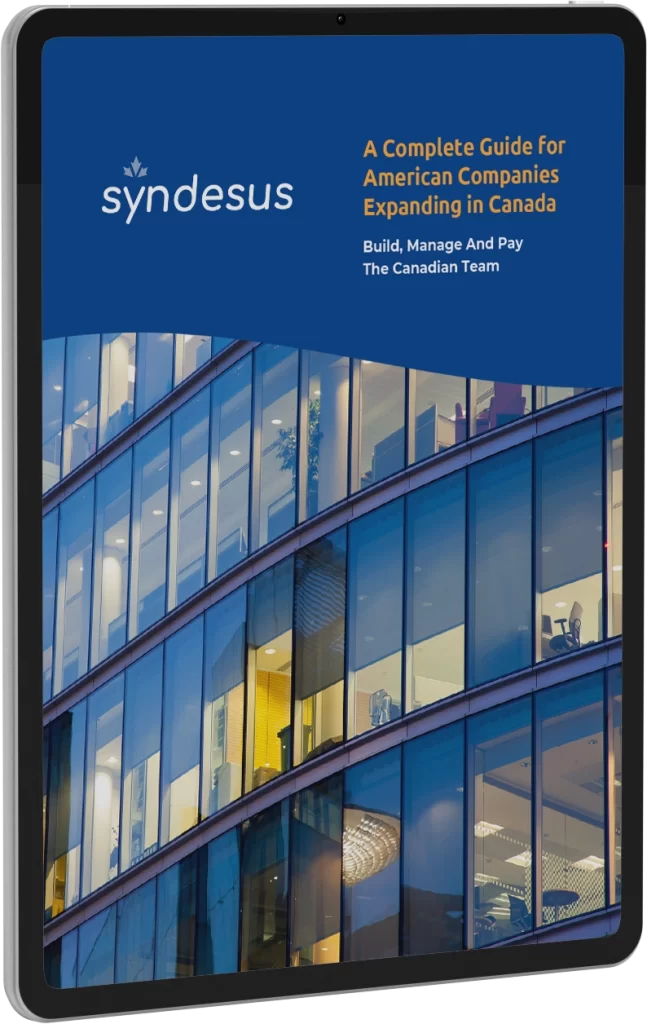We live in an interconnected world, yet navigating the complexities of immigration and building a new life in a foreign country can present challenges for even the most talented individuals — whether because of years-long and costly visa processes, language barriers, or the logistics of starting again. On the other hand, relocation transforms lives, diversifies the talent pool, and offers new and exciting opportunities.
We recently met in Calgary with foreign-born tech workers from Vietnam, Iran, and Cuba, whom we helped relocate to Canada. These countries are less “common” to immigrate from and, in some cases, have additional challenges to navigate in terms of the political situations and how they relate to the US visa system.
We wanted to share their stories in this article and show that other options are available to tech workers who may be having problems immigrating to the US.
Let’s dive in.
The Vietnamese tech worker who lost his H-1B
A Vietnamese tech worker working in Dallas, Texas, on an F-1 visa was dealing with an all-too-common work visa situation. His ambitions for a long-term future in the US were dashed when he lost the H-1B visa lottery. Even with strong support from his US employer, it looked like he and his family would have to start over elsewhere.
Because his US employer didn’t have a Canadian office, Syndesus stepped in with Employer of Record (EOR) services, which help companies hire talent locally in a country when they don’t have a legal entity or office in that country. In this case, Syndesus helped the employer sponsor a Canadian work permit using Canada’s immigration policies, specifically the Global Talent Stream, which can be processed in weeks.
This allowed the Vietnamese worker to work remotely in Calgary while remaining with his US employer and working the exact job he wanted in the same time zone as his American peers. The employer didn’t lose a talented employee, and neither the employer nor the tech worker had to struggle with the US immigration system anymore.
A perk of Canada’s Global Talent Stream is its fast track to permanent residency and citizenship, so now the tech worker will have even more options. As a Canadian citizen, he will have access to more immigration options in the US, such as a TN visa, so he could even move back to the US in the future if he wanted to. Most importantly, he and his family now have long-term stability in Canada.
The Iranian tech worker with a tough immigration story
We helped an incredibly talented engineer from Iran who was ready for new opportunities. However, as an Iranian, moving to the US would have been very difficult despite his incredible educational and professional background. Due to geopolitical tensions between the US and Iran over the years, Iranians are subject to an intensive vetting process above and beyond other applicants from the Middle East and North Africa (MENA) area. It can take many years for Iranians to secure a work visa for the US — if at all.
Instead, we connected him with a Canadian company that was interested in hiring him. He quickly got a job offer from a Canadian company that sponsored his Canadian work visa and allowed him a fresh start in the bustling city of Calgary.
He was able to move to Canada and avoid US immigration woes altogether. Indeed, there are many advantages to moving to Canada for those looking to immigrate, including a booming economy and a high demand for tech workers.
The Cuban tech worker who worked for American companies but couldn’t move to the US
The final story is about a Cuban tech worker and his friends, all graduates from one of the top technical schools in the country. They had fantastic English language skills and worked remotely for American companies for years but couldn’t get sponsorship to move to the US. Wanting to leave Cuba, his friends moved to Europe, but to become eligible for permanent residency in the countries they moved to, they had to learn the languages of their host countries. For our client, Canada came up as a promising alternative.
The client found a job with a Canadian employer and got his Canadian work permit within weeks, moved to Calgary and perhaps most importantly, didn’t have to worry about learning a new language. Indeed knowing the local language when you move to a new country immediately opens doors. This Cuban tech worker was able to more easily integrate into Canada’s welcoming society and didn’t have an extra hurdle to navigate when getting set up.
Creative immigration solutions open up more options for companies and tech workers
These three inspiring stories highlight how immigration can change lives. Companies can tap into a global talent pool, and skilled tech professionals can access fulfilling careers and secure immigration status. These success stories are far from unique, and the positive impact on people’s lives and the Canadian economy is undeniable.
So, how do you make this happen? These are some of the services that streamline immigration for both employees and their employers.
By leveraging PEO and EOR services, US companies of any size can expand into Canada and hire and retain talented employees without opening a legal entity in Canada. A Canadian EOR like Syndesus hires the individual on behalf of the US business as the official employer of record, pays the employee’s salary, manages their HR compliance, sponsors their GTS work permit, and more. The US employer, of course, still directly manages the employee, can give them stock options or any other company perks, and otherwise maintain a regular remote working relationship.
For tech professionals whose US employers may be unable or unwilling to move their jobs to Canada via an EOR, another great option is to get a tech job with a Canadian employer. This helps tech professionals avoid many of the long-term challenges that H-1B workers face, including a long backlog for obtaining US permanent residency. One easy way of doing this is to leverage Syndesus’ Path to Canada service, which connects talented tech workers who are vetted and considered strong candidates for a GTS work permit with Canadian companies eager to hire tech talent.
If you’re a tech worker and want to move to Canada, Syndesus can help!
Helping people like these find dream jobs, secure their futures from an immigration standpoint, and contribute to Canadian society is what we do. Whether you want to take your American job to Canada or start fresh with a new tech job, Syndedus has a service for you.
On the other hand, if you’d like to work for a Canadian employer directly, then Path to Canada, a Syndesus service, can help. Foreign-born tech workers can explore Canadian jobs and connect with Canadian tech companies willing to sponsor a work visa via our tech recruiting marketplace. Reach out to us to learn more about how we can help you work remotely for a US tech company from Canada, or join our Path to Canada database if you’re eager to work with a Canadian tech company.

About Marc Pavlopoulos
Marc Pavlopoulos is the CEO and Founder of Syndesus, a Professional Employer Organization that provides PEO services for US companies seeking to employ workers remotely in Canada, builds engineering teams in Canada for VC-backed startups in the US, and set-up remote offices in Canada for US companies. Additionally, Syndesus can assist foreign-born tech workers (and their US employers) with options for working remotely in Canada if they cannot stay in the US due to immigration/work visa issues.
As an American who has moved to Canada twice (for grad school and for work), Marc understands the challenges involved in starting a new life in a new country. Marc is a son of an immigrant and has great respect for people who leave their home country and seek a better life in the US or Canada.
Marc’s goal is to do everything he can to help those individuals achieve their dreams. Marc also has a second venture (Path to Canada) which helps foreign-born technical workers who cannot stay in the US (for immigration reasons) get a job and work authorization to work in Canada.

